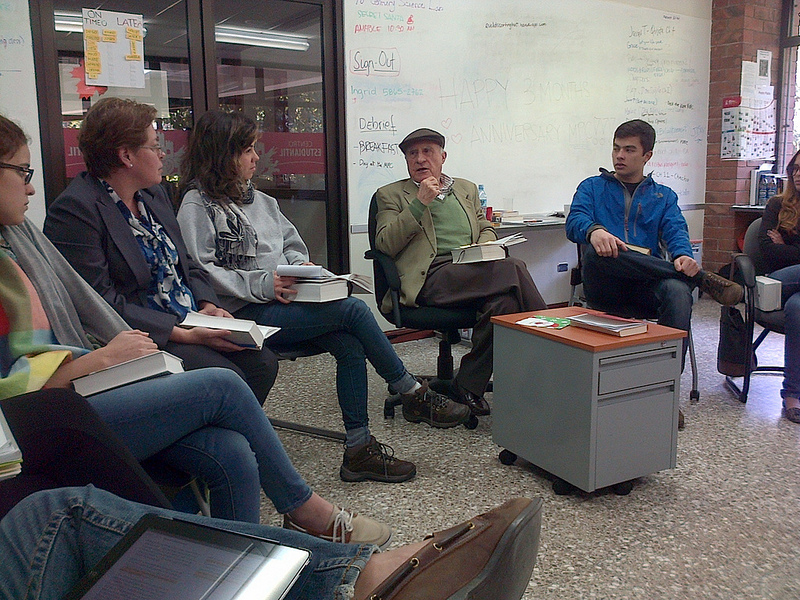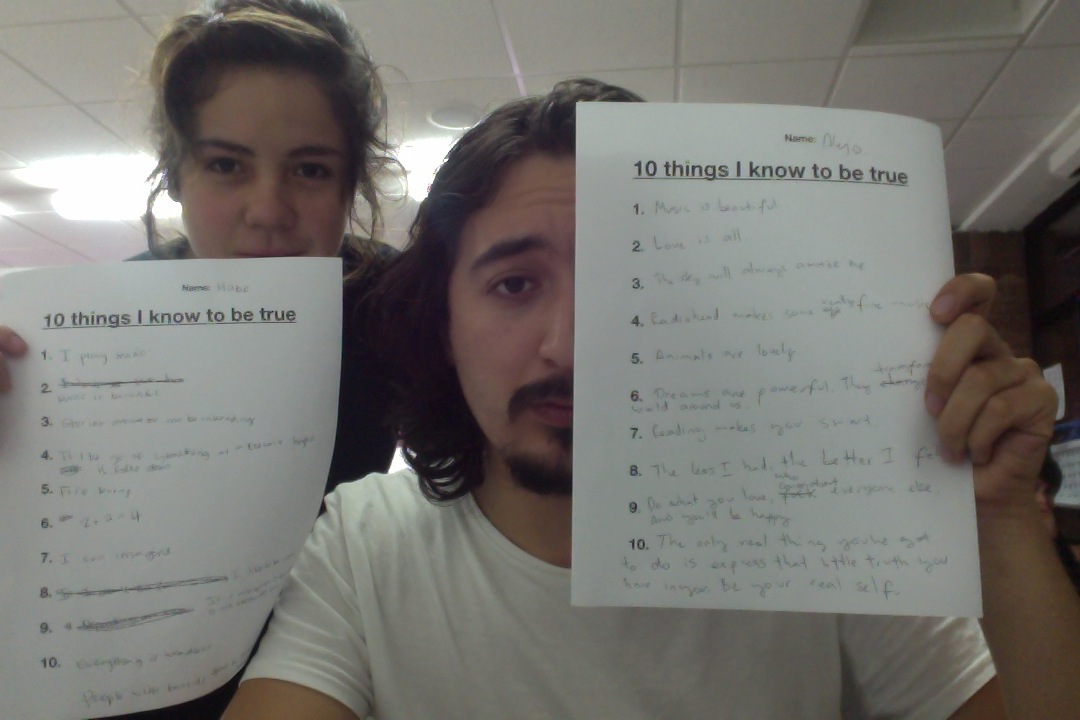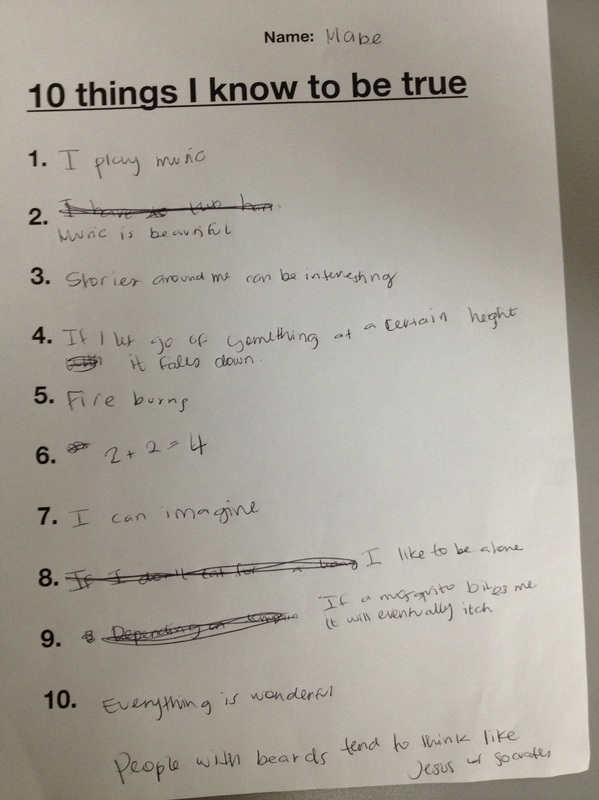To What End?
Edward Wilson finishes his book with a wonderful chapter that induces the reader to understand the fact that we are part of an environment, and we have reason, but that doesn't mean that everything will turn out to be alright.
We are not programmed to be perfect, we can make mistakes. And it's absolutely understandable that we make mistakes. There are things that work, others that won't. And the responsibility as conscious species is that we have to estimate and see if we're creating instead of constructing.
While reading this chapter, I have to admit I came to question certain facts about my economic perspectives. Until what extent are we free? Who speaks for the species that can't communicate? What is the borderline of our capacity to transform nature?
Thanks to Consilience, I can't stop thinking about how important it is for us to understand the fundamental rules of the world. It is incredibly valuable and beautiful.
We are parts of a species anyway. A part of history. With brains capable of reasoning and feeling.
Wilson ends with a wonderful phrase:
"... And if we should surrender our genetic nature to machine-aided ratiocination, and our ethics and art and our very meaning to a habit of careless discursion in the name of progress, imagining ourselves godlike and absolved from our ancient heritage, we will become nothing."
Ethics and Religion
In order to prove the theory of Consilience, we must understand that there is no such thing as other rules out of the regime of this universe. That is the difference between Transcendentalism and Empiricism. Transcendentalism asserts that there are inherent moral rules (whether coming from god or not), and Empiricism asserts that moral rules are a result of human behavior.
The independence of moral values from humanity asserts that there's some knowledge or mind outside ours. And that is why, if proven, Transcendentalism can disprove the theory of Consilience.
Though it is a difficult conversation that is still in the arms of philosophy, we can't discard the fact that our mind is the one that perceives knowledge and that is the only way we can understand moral values. Even, Michael Polanyi quotes:
“So far as we know, the tiny fragments of the universe embodied in man are the only centers of thought and responsibility in the visible world. If that be so, the appearance of the human mind has been so far the ultimate stage in the awakening of the world; and all that has gone before, the striving of myriad centers that have taken the risks of living and believing, seem to have all been pursuing, along rival lines, the aim now achieved by us up to this point. They are all akin to us, for all these centers - those which led up to our own existence and the far more numerous others which produced different lines of which many are extinct - may be seen engaged in the same endeavor towards ultimate liberation. We may envisage then a cosmic field which called forth all these centers by offering them a short-lived, limited, hazardous opportunity for making some progress of their own towards an unthinkable consummation." That is why we believe in gods.
We try to explain things, but with that we use our mind, the circuits. Further understanding of the mind will certainly help a lot understand this magnificent aspect of philosophy and our own visualization as species.
Ah, Socrates has so much to teach in a couple paragraphs. You can get amazed in how much you can get out of those.
In the paragraphs read in this phase, Socrates is arguing how he is not afraid of death, of the unknown. Also, how his death is more harmful for others than that to himself.
He gives us an interesting lesson. I made a vlog for this one.
Ah, Emerson. You just keep amazing me.
"The picture waits for my verdict: it is not to command me, but I am to settle its claims to praise."
In the first paragraph we read today, the quote I just wrote was mentioned. Amazing, it is, that we are the meaning makers. We are the humans that give things that power to be valuable according to out own values. And us, as individuals are those who dictate that value.
Also, Emerson goes to the categorizing, hierarchical issue we've been having for centuries. We're trained to think with a category from the very first time we start to learn things. But we must be free and care about our own shining. That is were the real selves lie.
We first share the life by which things exist, and afterwards see them as appearances in nature, and forget that we have shared their cause. Here is the fountain of action and of thought. Here are the lungs of that inspiration which giveth man wisdom, and which cannot be denied without impiety and atheism. We lie in the lap of immense intelligence, which makes us receivers of its truth and organs of its activity. When we discern justice, when we discern truth, we do nothing of ourselves, but allow a passage to its beams. If we ask whence this comes, if we seek to pry into the soul that causes, all philosophy is at fault. Its presence or its absence is all we can affirm. Every man discriminates between the voluntary acts of his mind, and his involuntary perceptions, and knows that to his involuntary perceptions a perfect faith is due. He may err in the expression of them, but he knows that these things are so, like day and night, not to be disputed. My wilful actions and acquisitions are but roving; — the idlest reverie, the faintest native emotion, command my curiosity and respect. Thoughtless people contradict as readily the statement of perceptions as of opinions, or rather much more readily; for, they do not distinguish between perception and notion. They fancy that I choose to see this or that thing. But perception is not whimsical, but fatal. If I see a trait, my children will see it after me, and in course of time, all mankind, — although it may chance that no one has seen it before me. For my perception of it is as much a fact as the sun.
I must apologize for such a big quote I just posted, but it is of great importance for me to share this. I first ought to mention that Emerson is a Transcendentalist, for this I mean that he believes in an external universal ethic. He is a theist, undoubtedly. But in this, Is there consilience breathing underneath these words?
Today was Kata's morning meeting. She brought us some paper and made us draw. But not the conventional way of drawing!
First it was not watching and knowing...
Secondly, it was not knowing and watching.
It was quite fun. And I find quite interesting, how scientific work needs that awareness, of the senses and of the knowledge in order to grasp the discovery in its more precise explanation...
I forgot to document this really important morning meeting last week. It was based on a quote:
“As a public school teacher, I teach the lesson of dependency. Good people wait for a teacher to tell them what to do. This is the most important lesson of all: that we must wait for other people better trained than ourselves to make the meaning of our lives… We’ve built a way of life that depends on people doing what they are told because they do not know any other way”.
I saw this quote before (last year in Freshman Experience), and I admit that it was life changing, besides, I saw this same quote with brand new eyes. I love that, going back to what I once learned and just observe it with brand new eyes, a brand new knowledge that hasn't been applied before to that.
On this, I will admit, I had an amazing experience sharing with my peers a moment in conversation, in which we read the quote, and took the wheel of the road of our learning process.
And that is what the whole quote (which is pure irony), is all about. Independent learning.
Diego, Ana Isabel, Pablito y yo leimos el capítulo 5 y 6 de Don Quijote en el Jardin Ayau. Descubrí lo importante y magnífico que es Don Quijote. También la cantidad de libros que desconocemos que tenía nuestro personaje principal.
Don Quijote, siendo una persona íntegra y fiel a su Dulcinea había sido apaleado por unos hombres que se había encontrado en el camino, a los cuales les había mencionado de la belleza de su señora, pero nadie le hizo caso y esto había enfadado a Don Quijote.
Aun así, se encontró a un conocido suyo el cual le mencionó quien era el: "el hidalgo de Quijana"...
"Yo sé quién soy —respondió don Quijote—; y sé que puedo ser no sólo los que he dicho, sino todos los Doce Pares de Francia, y aun todos los Nueve de la Fama, pues a todas las hazañas que ellos todos juntos y cada uno por sí hicieron, se aventajarán las mías."
Llevó pues el labrador a Don Quijote a su casa, en donde el ama, el barbero y el cura decidieron quemar una gran cantidad de los libros del caballero. Y los que no quemaron, los escondieron.
En el dialogo con Amable, el hizo una pregunta muy relevante para el libro. Si Don Quijote estaba siguiendo a ciegas su propósito (un nivel de idealismo a donde no se puede más), será seguir uno su propósito algo que equivale a locura?
Ah, yo prefiero que se me seque el cerebro como a Don Quijote y seguir eso que amo a que no se me seque el cerebro y vivir una vida de "cuerdo".
Tambien, elegí a la señora de mis ideales, mi Dulcinea, y ella se llama música.
First of all, we watched the announcement of this really cool movement that is going on here in Goathemala.
So, I ain't such a nationalist as far as I know, to say everything of this just about Guatemala. I would say, humanity is the best. But alright, maybe the coffee is an exception. The video I really enjoyed was this. I am REALLY INTO this.
This. This is a series of 3 videos: LEARN. MOVE. EAT. What more can be added to these three beautiful experiences? These all can be resumed to learn, but one of the things that I appreciate more is learning and of course, MOVING. MO-VING. THAT. THAT. THAT. Is what I'll do forever.
Ah, Euclid you're like a Guardian Angel watching over us. Ingrid asked us if we could construct the given triangles in Proposition 4, Book I. It became chaos, believe me. People went crazy, some shut their ears, some didn't understand what was happening. But at the end we decided to divide in groups to make this work. So, now we're divided in 3 groups. My group is Marce, Kata, Carmen, Grace and I. We decided to accomplish certain standards (these were the core of them):- Drawings have to be understood in our notebook.
- Logical structure
- Rhetoric and understandable explanation
What things I know are true? I've already realized my ignorance, but not the ignorance within my ignorance! Haha! But it was an amazing exercise.
|



 RSS Feed
RSS Feed